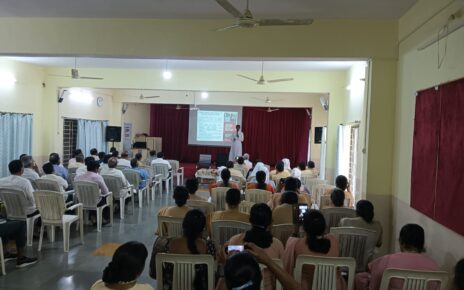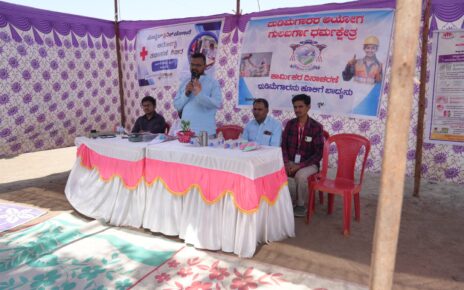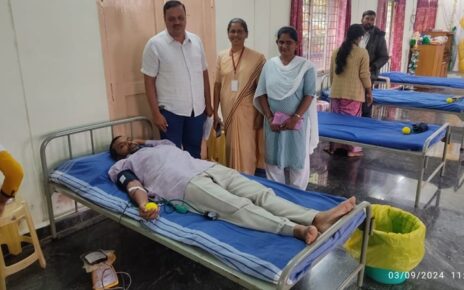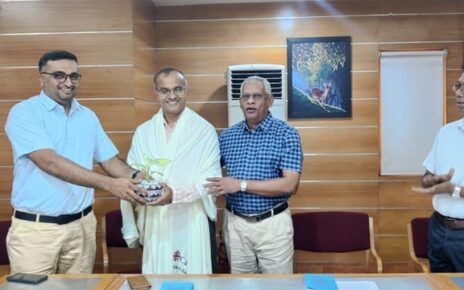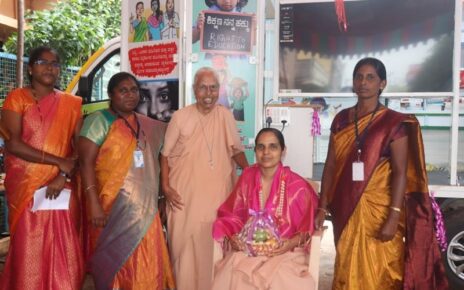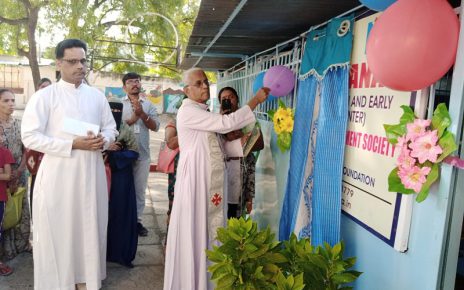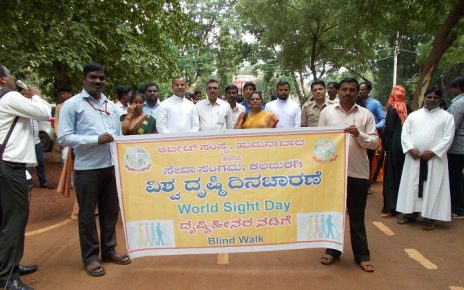COMMISSION FOR SOCIAL CONCERNS AND DEVELOPMENT
Secretary: Fr Victor Anil Vas Gulbarga
Joint Secretary: Sr Achala CSST Gulbarga
Core Group: Sr Susheela SAB Aland, Sr Mini FMM Udbal Itga, Mr. Ravi Bidar, Mr Anand Raj Gulbarga, Fr Santhosh Bapu Kaudayal, Fr Anil Crasta Ekamba, Mrs Shobha Bhalki, Fr Vincent Pereira Gulbarga, Sr Reena D’Souza SSpS Gulbarga, Sr Anitha SSpS Gulbarga.
Introduction
Pope Francis says: “The poor are valuable in the eyes of God because they do not speak the language of the self; they do not support themselves on their own or by their own strength; they need someone to take them by the hand. The poor remind us how we should live the Gospel: like beggars reaching out to God. The presence of the poor makes us breathe the fresh air of the Gospel, where the poor in spirit are blessed (cf. Mt. 5:3). Instead of feeling annoyed when they knock on our doors, let us welcome their cry for help as a summons to go out of ourselves, to welcome them with God’s own loving gaze. How beautiful it would be if the poor could occupy in our hearts the place they have in the heart of God! Standing with the poor, serving the poor, we see things as Jesus does….. The poor facilitate our access to heaven; this is why the sense of the faith of God’s People has viewed them as the gatekeepers of heaven. Even now, they are our treasure, the treasure of the Church. For the poor reveal to us of the riches that never grow old, that unite heaven and earth, the riches for which life is truly worth living: the riches of love.”
‘Truly I tell you, whatever you did for one of the least of these brothers and sisters of mine, you did for me’ (cf. Mt. 25:40). It should be an incentive to the Siocesan Social Service Society, Faith Based Organizations and Federations to impel us with the desire to alleviate with all possible means the sufferings of the needy, discriminated and marginalized sections of the society and respond with generosity and commitment to the calls and challenges of our time.
The social concern of the Church must be made manifest by our love directed to our neighbor (cf. Galatians 6:2) and see that the poor are well protected and provided for. The Church has a responsibility to awaken its people to practical social concern and not isolate themselves from the society as they are to be light of world living their faith as responsible citizens. We together have to adopt a strategy to inform, train, caution, connect and show compassion to the least of our brethren.
VISION: A society based on Justice, Peace, Equality, Common Good and Ecological Harmony.
MISSION: Upholding the dignity and rights of the most marginalized communities and engaging with development actors, the DSS works for Knowledge Exchange, Capacity enhancement and Collaborative social action, to achieve common good and sustainable Development.
GOAL: To actively participate in achieving Sustainable Development Goals in collaboration with FBOs, Govt. Organiztions, like-minded NGOs, Institutions and Individuals.
OBJECTIVES
- By the end of 2024, 1000 local (women)leaders in the Diocese have addressed local issues such as education, health & hygiene, environment, Govt. facilities, effectively.
- By the end of 2024, at least 50% of SHG members availing the govt. benefits will become self-employed increasing their economic status leading to self-reliance.
- By the end of 2024, Gender Equality has improved and at least 40% of the families uphold & practice Gender Equality.
- By the end of 2024, at least 100 elected women GP leaders in the target area will uphold and practice good governance by availing government benefits/ entitlements.
- By the end of 2024 all the girl children will go to school and at least 50% have an access to college education
Indicators
- 1000 emerging leaders take up issues on Health & hygiene, water and electricity, roads and transport facilities, education, atrocities on women, Environment & Integrated Development, child marriage, etc
- The Public Distribution System (PDS), Anganwadis and Midday Meal Schemes function effectively
- The instances of violence against women, child abuse, child labour, child marriage, atrocities on weaker sections are reported to the competent authorities
- Competent authorities (Police Officers, CWC, CLOetc) in respective departments are cooperative towards women who report a case.
- Federations are Self-Managing, Self-Reliant and are able to support the Staff
Strategies
- Promoting Community Based Organizations – basic human communities, federating at Grama Panchayath, Taluk, District and State level
- Facilitating Capacity building trainings and workshops for the CBOs
- Network and linkage for collective action through rights based approach with likeminded NGOs
- Advocacy and lobby with various Departments for basic amenities
- Guiding to take up atrocities and domestic violence issues with the concerned departments
- Ensure equality, dignity, solidarity, justice and rights at all times.
- Dialogue with the media for highlighting and sensitizing the issues to larger public through campaigns
- Promote committed leaders willing to contribute skill, time and experience without any monetary benefit.
Malnutrtion: Building Sustainable Community Resilience to Mitigate Malnutrition among the Children, Adolescent Girls and Lactating Mothers in 48 Villages of Gulbarga.
OBJECTIVES
- By 2024, people of 42 GramaPanchayaths in 110 villages, acquire knowledge and are aware of proper nutrition and health practices
- By 2024, 42 GramaPanchayaths in 110 participating villages will respect and uphold the right to survival, protection, participation and development of children.
- By 2024, the people of 10 GramaPanchayaths in 48 villages are empowered to demand their basic health services from the public health providers.
Objective 1: By 2020, people of 10 GramaPanchayaths in 48 villages acquire knowledge and are aware of proper nutrition and health practices.
Indicators
- Health Care Providers & Project staff having knowledge on malnutrition and health care services
- People are aware of the disadvantages of malnutrition and have taken preventive measures
- Women know the importance of vaccination for their children
- Reduction of Infant Mortality Rate (IMR)
- Reduction of Maternal Mortality Rate (MMR)
- Reduction of deaths due to Acute Respiratory Infections (ARI)
- Severely malnourished (SAM) children identified, enrolled and treated at Nutrition Rehabilitation Centers (NRC)
- Moderately malnourished (MAM) children identified and referred to Anganawadis
- Adolescent girls improved personal health and hygiene, know and avail the facilities of Sneha Clinic
- Women consume organic vegetables grown in the kitchen garden
- Pregnant women and lactating mothers enrolled to Anganawadis and consume nutritious food supplied by the Integrated Child Development Scheme (ICDS)
- Lactating mothers practice core child nutrition and health care
Objective 2
By 2020, 34 Grama Panchayaths in 174 participating villages will respect and up hold the right to survival, protection, participation and development of children
Indicators
- Children’s clubs formed
- Awareness created on child rights
- Child rights violation cases referred and solved
- Issues identified by children and solved
- Villages respecting the rights of children
- Participation in Children’s GramaSabha
Objective 3
By 2020, the people of 34 Grama Panchayaths in 174 villages are empowered to demand their basic health services from the public health providers.
Indicators
- Beneficiaries are aware of government schemes & programme
- Malnourished children, Adolescent girls, Pregnant and Lactating women receive nutritious food and government benefits
- Committees motivated and strengthened at Grama Panchayath level
- Service providers sensitized and are co-operating with the beneficiaries
- Participation in the Grama and Ward Sabha
- Issues raised and settled in the Grama Sabha
Strategies
- Building rapport and collaboration with the ASHA /Anganawadi workers/ANMs/VHSNC members and the primary and secondary stakeholders. (ASHA – Accredited Social Health Activist, ANM – Auxiliary Nurse and Mid-wife, VHSNC – Village Health, Sanitation and Nutrition Committee)
- Awareness programmes on Nutrition, Immunization, Pre and Post-natal care, Counseling, Institutional Delivery, Exclusive Breast Feeding for first 6 months, Sanitation & Personal Health Care for the Pregnant Women, Lactating Mothers, Adolescent Girls, Community and Stake Holders like SHG Members, Community Leaders and Duty Bearers like ASHA, Anganawadi Workers, ANM, and Members of VHSNC, SDMC, Bala Vikas Samithi and Teachers. (SHG – Self Help Group, SDMC – School Development and Monitoring Committee)
- Building rapport with NRCs
- Strengthening nutritional services and referral for SAM and MAM children
- Promoting kitchen gardens
- Building linkages with GOs and NGOs for tapping various Government schemes. (GO – Government Organization, NGO – Non Government Organization)
- Collaboration and strengthening Village Health Sanitation and Nutrition Committees (VHSNC)
Micro enterprise Programme for women though SAMRUDI RURAL UPLIFTMENT FOUNDATION
Goal: Poor women emerge as micro entrepreneurs and augment the family income
Objective 1
SHG and Federation members in Bidar & Gulbarga will gain capacity and receive business counseling through SS & ORBIT.
Objective 2
SHG and Federation members in Bidar & Gulbarga will be technically and financially supported to raise their family income
Indicators
- SHG and Federation members received business counseling and enhanced skills
- SHG and Federation members avail financial support
- SHG and Federation members mentored and trade monitored for viability
- SHG and Federation members’ family income and quality of life enhanced
Strategies
- Organizing EAP, EDP and SD trainings
- Grading of SHGs and Federations
- Capacity Building of SHGs and Federations as per need assessment
- Linkages to Banks and Financial institutions
Child Line
Ujjjivana
CBR
Early intervention
Mentally challenged
Sparsha – Cancer programme
SS to network with other NGOs, FBOs.
– The Commission will successfully network with Govt. Organizations, NGOs & FBOs to achieve the common good and Sustainable Development.
– The organization (SS) will work for resource mobilization by building rapport will govt. dept, philanthropic organizations and other donors and ensure sustainability of all the development programms.
– The organization will have qualified and experienced resource team for training the staff of the organization and staff of the networking organizations.



